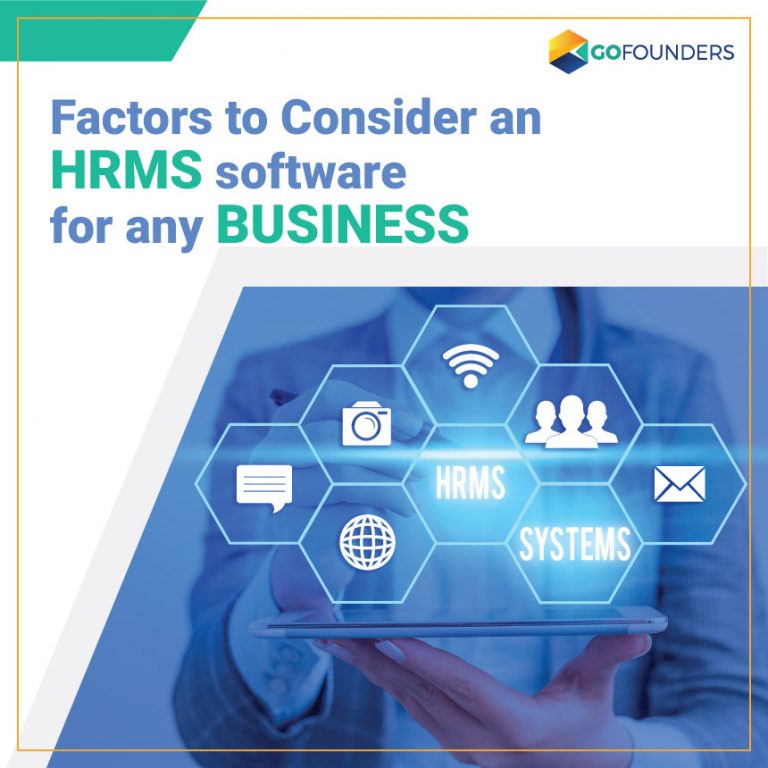
An HRMS, or Human Resource Management System, enables the management of various Human Resource roles into one package. It has various features such as performance analysis, reviews, recruiting and hiring payroll and benefits administration.
It is also called as Human Resource Management software that manages all employee data as well as information benefits, such as enrolment and status changes.
It is an employee self-service that enables employees to update personal data without having to involve HR for simple tasks.
HRMS aims to increase the productivity and efficiency of a business and can now address more strategic and business critical tasks.
Suggestions you should consider when choosing an HR Software.
To fulfill the company’s needs, you should remember to choose software that meets the company’s needs and what it requires. For instance, you may need an automated software on boarding for your employees.
The following are the functions offered by the majority of the HRM applications
- Employee database– you can manage and store employee data such as attendance, performance, leave, compensation, absence and much more.
- Recruitment and applicant tracker– here you can find contacts and hire candidates.
- Benefits Management information– You can track the employee benefits such as insurance, vacation and sick leaves.
- Time and Attendance Management– it tracks time and absence.
- Learning Management – it organizes training data such as information about courses, trainers etc.
- HR Analytics– it uses HR data without using any third-party apps.
- Reporting- Is to create reports faster.
As soon as your requirements are structured, it’s time to create a spread-sheet that will be your tool for competitors’ comparisons.
To consider your Company’s size– The number of employees of your company should be taken into account as few HRMS Software cannot handle companies with complex needs. For example, CakeHR is a small-sized business, and the HR Specialists manage time off, create reports and onboard and offboard employees.
On the contrary, Oracle PeopleSoft is a large enterprise with complex requirements and serves in various industries. It enables integrations with third-party systems and has all the key features an employee needs.
- HR managers and employees mostly use HR Software. With the help of HRMS Software, HR teams automate several tasks that include recruiting and applicant tracking. This software creates candidate profiles, and lets recruiters share job postings. Other features include reporting, performance management, payroll and learning management that are used by the HR managers.
- Features used by employees are self-onboarding, Paid time off (PTO) tracking, 360- degree reviews and more. With self- onboarding, newly hired employees can know all the information they need even before their first day of work.
- When using HRMS software, you can store all employee data in one place to check integration and customization capabilities. To make that possible, data needs to be taken from other systems like payroll and accounting. So it is necessary to make sure that you can integrate HR software with the system. You need to make sure that your HR is flexible enough to set up the method according to your requirements. Sometimes, even with integration, it can be difficult to find a readymade solution. Therefore, some companies choose to build their own HRMS software according to their needs.
Here are the Pros and Cons of Readymade & Custom-built software
Depending on these factors, one can choose what is better for their Company
Readymade
Pros
- It’s Price- A readymade solution offers a large amount of cost savings. The price for HRMS software may wary, but it is still cheaper than designing your product.
- It’s Maintenance support- Many vendors provide customer support when something goes wrong or have any questions giving you access to a user community.
- Speed of deployment and implementation- A readymade product is quicker to deploy and a Cloud-based HR software takes even lesser time.
- It’s Training- Companies that sell the HRMS software provide training to understand the features and use them.
- HR & Legal compliance is essential to follow the employment laws, so some cloud-based HRMS solutions update company information automatically and inform their users.
Cons
- Vendor lock-in makes the customer dependent on the product, making it difficult for the user to transfer software to another HRMS.
- Flexibility and customization are limited when it comes to readymade software. It may not meet some unique HR features that your business needs.
Custom-built Software
Pros
- Custom-built software provides greater flexibility, control and meets all the needs made for your Company. Thus, it can handle heavy workloads and data.
- It’s ability to build functionality for your Company’s needs.
- It makes it easier for employees to understand and work effortlessly.
Cons
- A Custom made solution costs more than off-shelf software. It requires more maintenance and an in-house outsourced team to maintain it.
- As it is a custom-made software, it takes around four months to develop the core features.
Wrapping Up
In the end, it all depends on your Company’s requirements, size, goals and the amount of money you are ready to invest. Choosing any solution has its advantages and drawbacks, so you need to understand your Company’s requirements and choose the right HRMS software.


